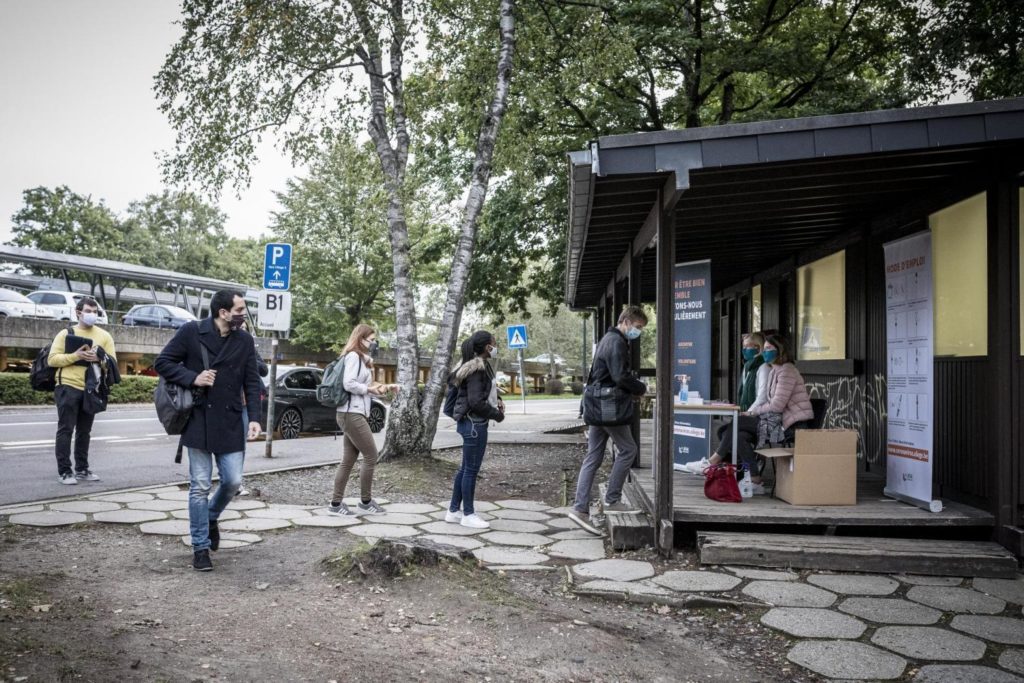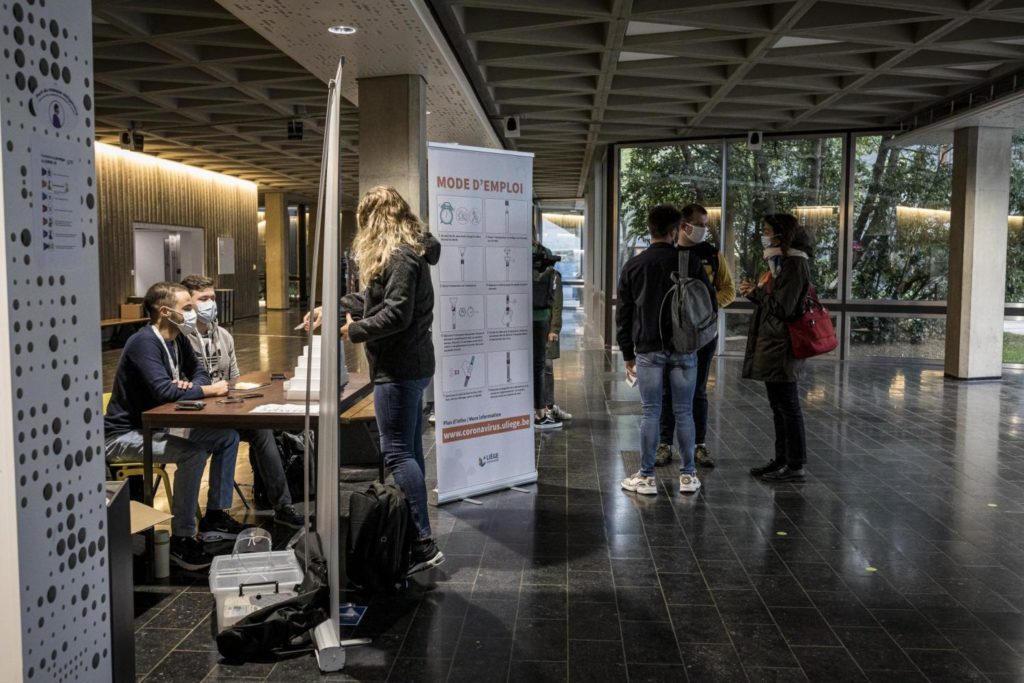A Belgian university has launched a campaign aiming to encourage all its staff and student body to screen themselves for the coronavirus every week using saliva-based tests.
The University of Liège began distributing self-sampling saliva kits across its campuses on Monday as part of a mass-testing campaign coinciding with the launch of the new academic year.
A press official for the university said that the screening tests will be distributed every week from Monday to Friday and that the hand-outs are set to last until at least the end of the first quarter.
Devised by researchers at the university, the kits allow users to collect a sample of their own saliva to drop off at a collection point on campus for testing at a university lab, where a standard PCR analysis is carried out.
[caption id="attachment_133368" align="aligncenter" width="1024"] © Valentin Bianchi/Provided by ULiege[/caption]
© Valentin Bianchi/Provided by ULiege[/caption]
"People take their saliva sample the morning after receiving the kit, on an empty stomach, and before brushing their teeth," a press release by the university said.
"Our goal is to have a tool to monitor and limit the spread of the virus in our community," University Dean Pierre Wolper said." We will also have a tool to evaluate the measures in place in relation to the real situation and to propose to adapt them so that our activities can continue in the best possible conditions."
Adaptive measures could include a total or partial return to distance-learning in a given faculty or university building if a concentration of positive tests is detected there, the press officer said.
Participation in the testing campaign is voluntary and anonymous with results available within 36 hours in an online platform launched for the campaign.
While the press officer said that the saliva-based sampling was less sensitive than the samples collected via nose or throat swab, and therefore had a higher potential for false positives or negatives, university officials expect that that will be made up for by the fact that tests are taken regularly, allow to draw conclusions from consistent results over a short period of time.
Those who receive a positive result to their test will be issued a recommendation to self-isolate and notify their doctor so they can enter the national tracing and testing platforms.
Gabriela Galindo
The Brussels Times

